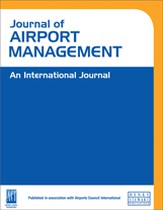Review of recommendation on Southwest Airlines’ request for expansion of federal inspection facilities at William P. Hobby Airport and the impact of dividing international service between two airports
Abstract
The entry of low-cost air carriers (LCCs) several decades ago reshaped the airline travel market by reducing costs, resulting in more air travel by moderate income earners. Originally, these carriers served shorter-distance trips in regional markets. As time progressed, these LCCs extended trip lengths and entered more markets, providing solid competition to legacy airlines. The potential to expand geographic coverage to international markets became an issue in the Houston metropolitan area as Southwest Airlines sought approval from the City of Houston to begin international service from William P. Hobby Airport to select cities in the Caribbean, Mexico and central and northern South America. These markets from Houston were served principally by legacy carrier United Airlines from George H. W. Bush Intercontinental Airport with a few daily trips by other airlines. United Airlines vigorously opposed the expansion, citing a negative impact on the market that would result in higher fares, lesser service and job loss. The City of Houston's Mayor and City Council faced the challenging task of deliberating the potential benefits and disadvantages of approving Southwest Airlines’ request to begin international service from William P. Hobby Airport.
The full article is available to subscribers to the journal.
